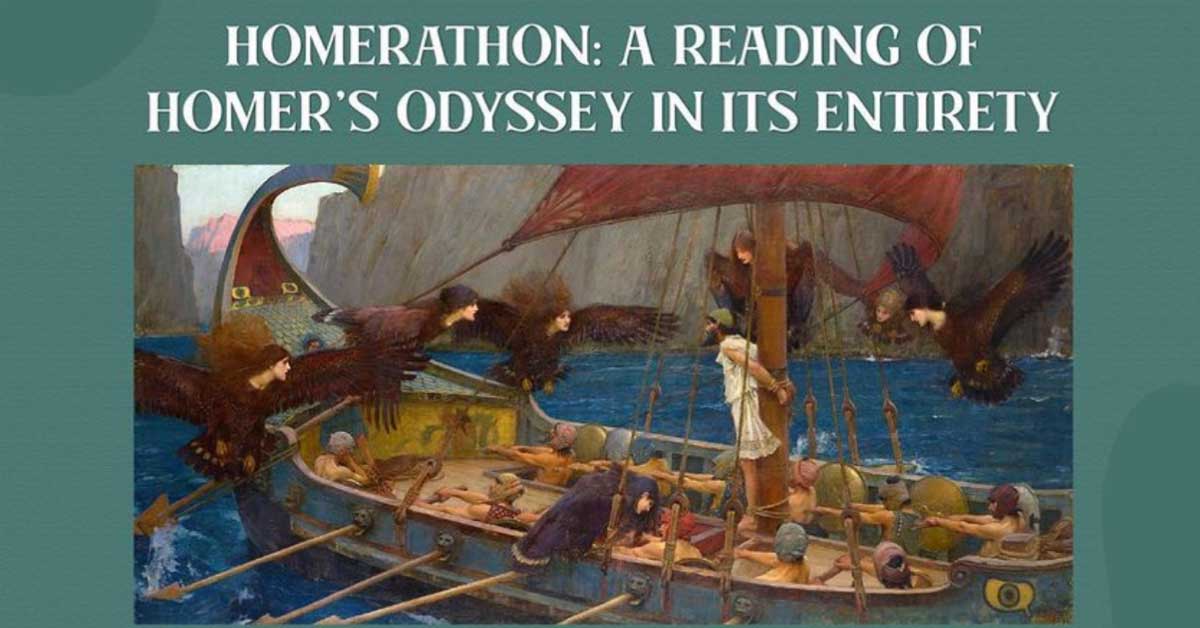
National Hellenic Museum Homerathon event
The Odyssey is one of the oldest extant works of literature in the world. It was derived from a much older oral tradition that stretched as far back as 3,000 years ago, the date at which the current text came together remains a source of considerable disagreement among Classicists.
Used as a school text throughout antiquity and the Byzantine Middle Ages, The Odyssey was a widely copied and available book. The first print edition of The Odyssey was printed in 1488 in Milan, Italy by a Greek printer named Antonios Damilas. The text had been prepared by the Greek scholar Demetrios Chalkokondyles. Both Damilas and Chalkokondyles who had fled to Italy after the fall of Constantinople.
The first English translation of The Odyssey was made by George Chapman in 1614. Over four hundred years later, in 2017, Emily Wilson became the first woman to publish a translation of The Odyssey in English. It remains a school text in the United States and Europe and is still foundational to literature and culture around the world.
And who was Homer, you may ask? This question has puzzled and excited people since ancient times. In Antiquity, when the vast majority of people believed Homer to be a single, historical person, people would search for clues about his biography. Since the 19th century, however, most have agreed that Homer never existed, and if such a person did exist, he was certainly not the sole author of the poems that now bear his name.
Due to the groundbreaking work of the American Classicist Milman Parry, since the early twentieth century most people have come to believe that The Odyssey belongs to ancient oral tradition passed down by singing bards (rhapsodes). Each recitation was an act of both imitation and creativity. In a real sense, Homer is all Greek people, speaking together with one voice across the centuries. Witnessing the poem read aloud today, in a festive setting, is very close to the way ancient audiences once experienced this timeless work.
And you can do just that on April 21 and April 22. The National Hellenic Museum & UIC Department of Classics and Mediterranean Studies are partnering once again to host Homerathon, a reading of Homer’s Odyssey in its entirety. Please join us as we read the ancient tale of Odysseus’ journey home from war. It is a story filled with twists and turns, fateful discoveries and shocking defeats. It is the greatest adventure story ever, prompting all to ask: What is your next adventure?
To learn more or sign up to read, visit our website at: https://nationalhellenicmuseum.org/homerathon/

